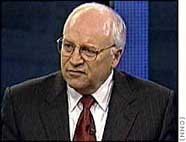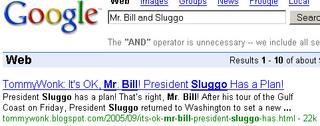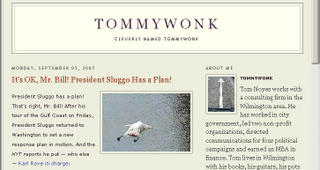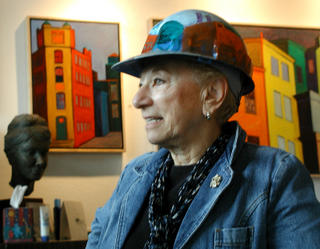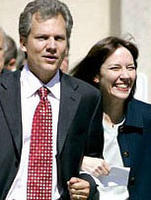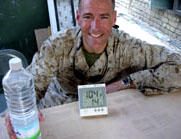"Clear Skies" Initiative: At Least It's Cheap
 The EPA has finally presented a comparative analysis on President Sluggo's "Clear Skies" iniative and competing proposals. The result: "Clear Skies" is a bit cheaper. (It also has its own cheesy graphics, which can be found on the EPA's website.)
The EPA has finally presented a comparative analysis on President Sluggo's "Clear Skies" iniative and competing proposals. The result: "Clear Skies" is a bit cheaper. (It also has its own cheesy graphics, which can be found on the EPA's website.)"Clear Skies" has been stuck in the Senate Environment and Public Works Committee for two years. Senator Tom Carper, who is so centrist it hurts, voted against the nomination of Stephen Johnson as EPA administrator to try to force the agency to analyze the competing proposals. According to the NYT, the analysis did not convince two critics of the administration's plan:
But Senator James M. Jeffords of Vermont, an independent who sponsored a competing measure, said the agency analysis failed to convince him that the administration plan was superior. He said it was "no better and in some respects worse," than current regulations under the Clean Air Act.The News Journal reports that Carper's alternative proposal includes a relatively modest carbon emissions trading system:
Senator Thomas R. Carper, Democrat of Delaware, who sponsored yet another bill, said: "We can do better than the president's Clear Skies plan. The administration's own analysis shows that Clear Skies doesn't clean the air any better than what we've already got on the books."
"Despite all the grand pronouncements from this White House that carbon controls would ruin the economy, their analysis shows that quite the opposite is true," Carper said in a statement. "Our carbon-trading program would cost just a dollar per ton, yet it would jump-start our efforts to control carbon emissions and do something about global warming. If we can do that and do it cheaply, what are we waiting for?"EPA's Johnson has suggested that he's open to negotiation. But what incentive is there for Carper, Jeffords and others to craft a compromise based on a proposal that accomplishes nothing in terms of cleaning up air pollution?
